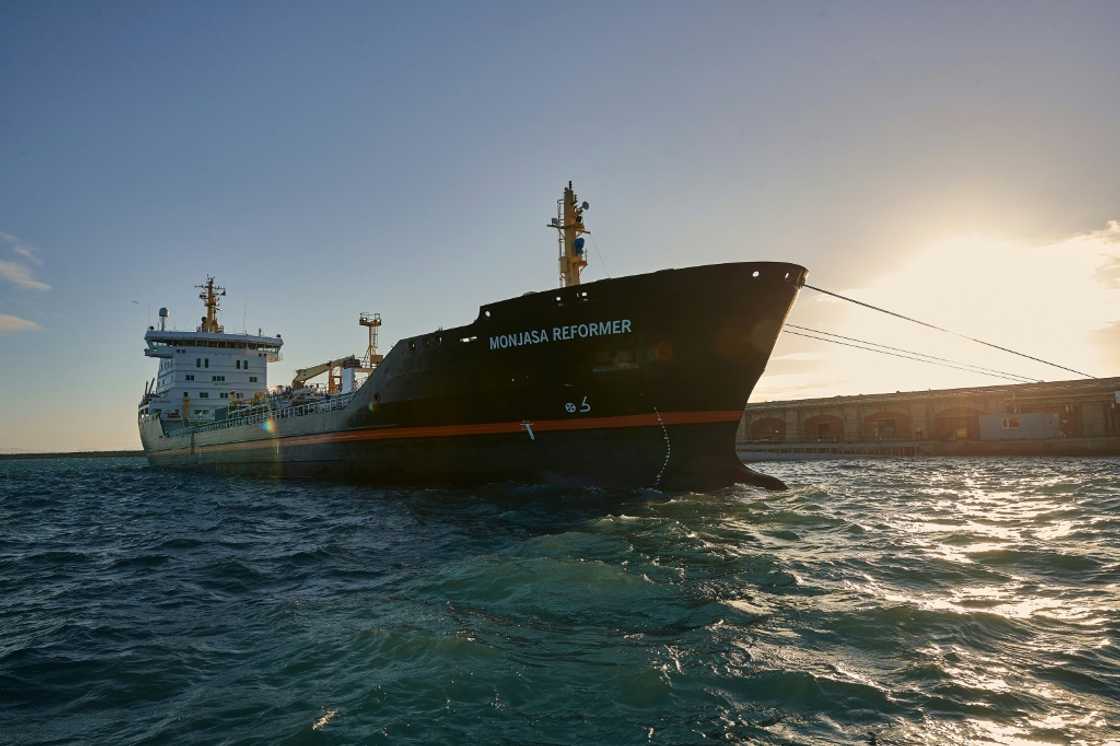Pirates boarded Danish ship in Gulf of Guinea

Source: AFP
PAY ATTENTION: Enjoy reading our stories? Join YEN.com.gh's Telegram channel for more!
A Danish-owned Liberian-flagged oil tanker was boarded by pirates over the weekend in the Gulf of Guinea, the owner said Tuesday, adding that contact with the 16 crew members had been lost.
The 135-metre-long Monjasa Reformer "experienced an emergency situation" on Saturday about 140 nautical miles west of Port Pointe-Noire in Congo-Brazzaville, owner Monjasa said.
The shipowner added that the crew had sought refuge in the tanker's citadel when the pirates boarded, "in accordance with the onboard anti-piracy emergency protocol".
A citadel refers to a secured room where the crew of the ship can hide in the event of an attack or when pirates board the ship.
"Onboard communications channels are currently down and we are working with the local authorities to establish communication to understand the situation on board and provide all the support needed by the crew to overcome these dreadful events," Monjasa said.
Monjasa also said that "the vessel was sitting idle" when the incident occurred.
PAY ATTENTION: Follow us on Instagram - get the most important news directly in your favourite app!
Monjasa declined to give any information on the nationalities of the crew members when asked by AFP.
According to an official at the port of Pointe-Noire, the ship had arrived in Congolese waters on March 18 and left on March 22, and was in international waters when it was attacked.
"Three men took control of the ship and since then the crew can no longer be reached," the official told AFP.
Pirates have long been a risk in the Gulf of Guinea -- a major shipping route stretching 5,700 kilometres (3,500 miles) from Senegal to Angola, with Nigerian gangs carrying out most attacks.
But since 2021, shippers say pirates have been raiding farther out in international waters.
Their violence and sophisticated tactics prompted pleas from shippers for a more robust foreign naval presence like the mission to curb attacks from Somali pirates a decade ago.
Lull in attacks
Many of the attacks in recent years have been carried out by Nigerian criminal gangs who strike out in speed boats from hideouts in the Delta region to raid vessels.
Some gangs have captured larger fishing vessels which they use as a "mothership" base to raid further out to sea.
But the region, which sees a lot of traffic from oil tankers, has also seen a lull in activity recently.
According to a report by The Maritime Information Cooperation and Awareness Center (MICA), three ships were attacked in the area in 2022 compared to 26 in 2019.
The sharp decline in Gulf of Guinea attacks contributed to 2022 recording the lowest number of incidents of piracy and armed robbery worldwide with 132 cases, according to the annual report from the International Maritime Bureau.
Two other attacks were recorded in the region in 2023 so far.
Denmark, home to shipping giant Maersk, sent a naval frigate in 2021 to patrol the waters, after the country had pushed for a stronger international naval presence.
The Absalon-class Danish frigate Esbern Snare -- equipped with a helicopter and around 175 marines onboard -- was sent to patrol the waters between November 2021 and March 2022, a period when the risk of attacks was higher.
The gulf has periods of calmer seas when it is easier for pirates to race out from hidden bases on the Nigeria coast to raid commercial vessels offshore and kidnap crew.
In November 2021, sailors from the frigate were involved in a firefight resulting in the deaths of five suspected pirates.
A suspected Nigerian pirate was transferred to Denmark to receive medical care after the skirmish.
After needing to have his leg amputated the man, who has also applied for asylum in Denmark, was put on trial for and convicted of endangering the lives of the Danish sailors.
New feature: Сheck out news that is picked for YOU ➡️ click on “Recommended for you” and enjoy!
Source: AFP




